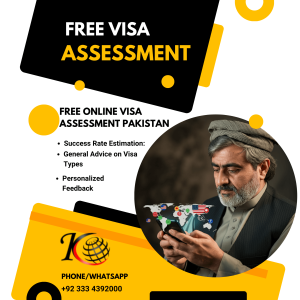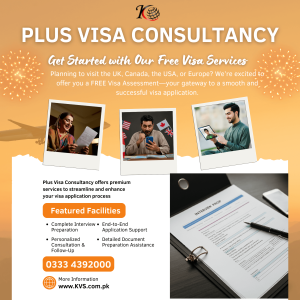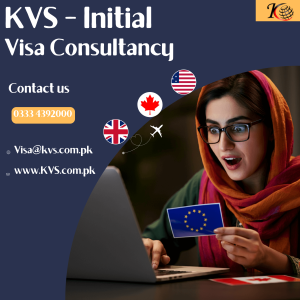
Legal Framework of Visa and Immigration Consultants

Visa and immigration consultants play a pivotal role in assisting individuals seeking to travel abroad for study, work, or permanent residence. However, the legal frameworks governing visa and immigration consultants vary from country to country, with some nations having more robust regulations than others. This article delves into the current legal frameworks for visa and immigration consultants, the risks involved, and suggestions for improvement at both the government and consultant levels.
Understanding the Legal Framework of Visa and Immigration Consultants
Visa and immigration consultants in many countries must adhere to specific regulations designed to protect applicants and ensure professional conduct. These regulations help in minimizing fraudulent activities and ensure that consultants provide accurate, up-to-date information. Countries like Canada, Australia, and the United States have established governing bodies that license and regulate immigration consultants.
Canada’s Immigration Consultants Regulation
In Canada, the Immigration Consultants of Canada Regulatory Council (ICCRC) is the regulatory body overseeing immigration consultants. Only members of ICCRC are authorized to offer immigration advice and services. The ICCRC ensures that consultants follow ethical practices and comply with the country’s immigration laws. For more information on ICCRC, visit their official website ICCRC.
Australia’s Migration Agents
Similarly, in Australia, the Office of the Migration Agents Registration Authority (OMARA) regulates migration agents. Migration agents are required to register with OMARA, ensuring that they meet the required standards and adhere to strict ethical guidelines. This reduces the risk of misleading advice and exploitation. Learn more about OMARA at OMARA.
The United States: Legalities Around Immigration Lawyers and Consultants
In the U.S., the landscape is slightly different. Immigration services are largely provided by immigration lawyers who must be licensed by a state bar association. While non-lawyers can offer general advice, they are prohibited from giving legal counsel. The U.S. Immigration and Nationality Act mandates that only accredited representatives of recognized organizations can assist with immigration cases.
Risks of Using Visa and Immigration Consultants
While most visa and immigration consultants aim to help clients navigate complex legal processes, there are significant risks involved, especially when consulting an unlicensed or unethical provider.
1. Fraud and Scams
In many countries, including Pakistan, the lack of proper regulatory oversight means that fraudulent consultants can take advantage of desperate applicants. Common scams include charging exorbitant fees for services not rendered or providing false promises regarding the success of visa applications.
2. Inaccurate or Misleading Advice
Unqualified consultants might provide applicants with incorrect advice, leading to visa rejections or legal complications. Applicants may be advised to pursue certain pathways that are not in their best interest, which can cause delays and financial losses.
3. Lack of Accountability
Without a formal regulatory body, consultants may not be held accountable for their actions. In countries where regulations are weak, clients have limited avenues for filing complaints or seeking redress.
Suggestions and Recommendations
To address the risks associated with immigration consultancy, several steps should be taken by governments, consultants, and applicants themselves.
Government Level Recommendations
Establish a Regulatory Body: In countries like Pakistan, there is a pressing need to establish a dedicated body for regulating visa and immigration consultants. This would help ensure that only licensed professionals are allowed to operate in the market, reducing fraud and ensuring compliance with immigration laws.
Create Awareness and Educate Applicants: Governments should initiate awareness campaigns to educate people about the risks of using unlicensed consultants. Providing easy access to information about authorized professionals is key to avoiding fraudulent schemes.
Enforce Accountability: The government must establish a clear process for filing complaints against consultants who mislead or scam clients. Establishing a grievance redressal mechanism would protect the interests of applicants.
Consultants and Lawyers Level Recommendations
Adherence to Ethical Practices: Consultants and lawyers must ensure they follow a strict code of ethics and provide clear, honest advice to applicants. Transparency in pricing and services should be a cornerstone of their operations.
Continuous Education: Immigration laws and policies change frequently. Consultants must invest in continuous education and training to stay updated with the latest regulations and best practices.
Provide Free Assessments and Consultations: Services like Kairos Visa Services in Pakistan offer Free Visa Assessment, which can be an invaluable tool for applicants to assess their eligibility without any initial financial commitment. Offering such services can build trust and help applicants make informed decisions.
Steps Applicants Should Take
Verify Consultant Credentials: Before hiring a visa consultant, applicants should verify their credentials. In countries with regulatory bodies, only licensed professionals should be trusted. For instance, Canadian consultants must be members of the ICCRC, while Australian consultants should be registered with OMARA.
Avoid Upfront Fees: Be wary of consultants asking for large upfront fees without a clear agreement on services rendered. Always ask for a detailed contract and make sure all charges are transparent.
Research and Seek Reviews: Applicants should research the consultant’s reputation by reading reviews, checking their success rates, and consulting past clients if possible.
Conclusion
Navigating the complex landscape of immigration and visa applications can be challenging, but with the right consultant and a thorough understanding of the legal framework, applicants can mitigate the risks. Governments must take proactive steps to regulate the industry, while consultants and lawyers must maintain high standards of professionalism. Applicants should stay informed, verify credentials, and take steps to ensure they are working with reliable professionals.





